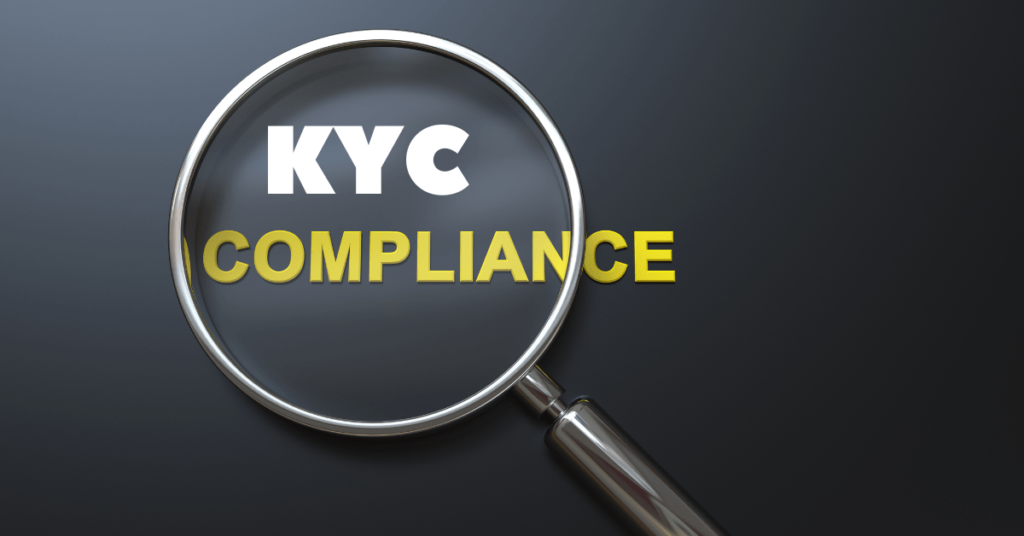Introduction to KYC Compliance
In today’s fast-paced financial world, the need for security and trust has never been more critical. As businesses engage with clients across digital platforms, ensuring they know their customers is paramount. This is where KYC Compliance is a vital measure designed to protect organizations and consumers from fraud and illicit activities. But what does KYC entail? And why should every modern business pay close attention to it? Let’s dive deeper into this essential aspect of financial operations and discover how it can shape your organization’s future while safeguarding customer interests.
What is KYC Compliance?
KYC Compliance, or Know Your Customer compliance, refers to the process that financial institutions and businesses must follow to verify the identity of their clients. This practice helps prevent fraud and ensure they are not engaging with individuals involved in illegal activities.
At its core, KYC involves collecting essential information about clients. This can include identification documents, proof of address, and details about financial status. By implementing these measures, organizations can better understand who their customers are.
KYC is not just a regulatory obligation; it’s also crucial for fostering trust between businesses and consumers. When companies take the time to know their customers properly, they create safer transaction environments while enhancing customer satisfaction through personalized services tailored to individual needs.
Importance of KYC Compliance in Modern Financial Operations

KYC compliance is essential in today’s financial landscape. It protects businesses and consumers by safeguarding against fraud and money laundering.
By verifying customer identities, organizations can build trust. This transparency fosters long-lasting relationships between companies and their clients.
Regulatory bodies are tightening rules regarding KYC procedures. Non-compliance can result in hefty fines or even the loss of operating licenses.
Moreover, customers prefer dealing with institutions that prioritize security. A robust KYC process enhances brand reputation and attracts more clients.
In an age where digital transactions dominate, the importance of KYC compliance cannot be overstated. It ensures that financial institutions operate within legal frameworks while promoting ethical practices in commerce.
The Risks of Non-Compliance
Non-compliance with KYC regulations can lead to severe repercussions for financial institutions. One significant risk is hefty fines imposed by regulatory bodies. These penalties can significantly impact a company’s bottom line.
Additionally, non-compliance opens the door to fraud and money laundering activities. Criminal enterprises often exploit weaknesses in customer verification processes, damaging finances and reputation.
Firms failing to adhere to KYC standards may face legal challenges or even criminal charges. This creates an environment of distrust among clients and partners alike.
The fallout from non-compliance extends beyond immediate financial consequences. It can hinder growth opportunities as businesses need help to regain trust within the market.
Neglecting KYC compliance poses risks that affect every aspect of a company’s operations—from finances and reputation to long-term viability in the competitive landscape.
Steps for Implementing KYC Compliance in Your Business
Implementing KYC compliance requires a structured approach. First, assess your current processes to identify customer identification and verification gaps.
Next, select the right technology solutions. Consider software that automates data collection and risk assessment. This reduces errors and speeds up the onboarding process.
Training staff is crucial. Equip your team with regulatory requirements and best practices for customer interactions. Hold regular workshops to keep everyone updated.
Establish clear policies outlining how you will securely handle customer information. Transparency fosters trust with clients while ensuring you meet legal obligations.
Regular audits are essential to continuously evaluate effectiveness. These checks help pinpoint areas needing improvement or adjustment based on new regulations or industry standards.
Foster a culture of compliance within your organization, where every employee understands their role in effectively maintaining KYC protocols.
Benefits of KYC Compliance for Businesses and Customers

KYC compliance offers significant advantages for both businesses and customers. For companies, it fosters trust and credibility. Verifying customer identities creates a secure environment that encourages long-term relationships.
Customers also benefit from enhanced security. Knowing that their financial institutions prioritize identity verification reduces the risk of fraud and unauthorized transactions, which is invaluable in today’s digital landscape.
Moreover, KYC compliance helps businesses streamline operations. With clear guidelines on customer identification, processes become more efficient, reducing delays and improving overall service quality.
On the regulatory front, compliant businesses face fewer legal penalties or fines. Staying ahead of regulations protects them and reinforces their commitment to ethical practices.
Effective KYC processes enable tailored experiences based on established profiles for customers seeking personalized services while ensuring privacy protection throughout interactions with financial entities.
Challenges and Solutions for Successful KYC Compliance
Implementing KYC compliance can be challenging for many businesses. One significant hurdle is keeping up with varying regulations across jurisdictions. Each country has its requirements, making standardization difficult.
Another challenge is integrating technology. Many organizations struggle to adopt advanced tools needed for effective data verification and analysis, which can lead to inefficiencies and increased costs.
To address these issues, businesses should invest in robust software solutions that streamline the KYC process. Utilizing artificial intelligence can enhance data accuracy while reducing human error.
Proper training of staff also plays a vital role. Equipping employees with knowledge about compliance processes ensures they understand their responsibilities fully.
Regular audits provide an additional layer of security by identifying procedural gaps before they become problematic. By tackling these challenges head-on, companies strengthen their commitment to KYC compliance and build customer trust.
Future of KYC Compliance in the Financial Industry
Innovation and technology are shaping the future of KYC Compliance in the financial industry. Advanced solutions like artificial intelligence and machine learning streamline verification processes, making them faster and more accurate.
As digital transactions rise, so does the need for robust compliance measures. Biometric identification methods are gaining popularity, providing an extra layer of security against fraud.
Regulatory bodies continue to refine their frameworks, pushing institutions toward more dynamic compliance strategies. This evolution encourages financial entities to adopt flexible approaches that can adapt quickly to changes in regulations or client needs.
Additionally, collaboration among financial institutions will become crucial. Sharing data while maintaining privacy could significantly enhance risk assessment capabilities.
Consumer expectations also play a role. As customers demand seamless experiences, businesses must balance rigorous compliance with user-friendly interfaces—creating a challenge worth tackling head-on.
Conclusion
KYC compliance stands as a pillar of security in today’s financial landscape. It not only aids in safeguarding businesses but also fosters trust among customers.
As regulations evolve, so must strategies for implementing KYC processes. Companies that stay ahead will likely see long-term benefits and enhanced reputations.
Embracing technology can streamline these efforts, making compliance more efficient and less burdensome. The future is promising for those who prioritize robust KYC measures.
Navigating this complex environment requires commitment and adaptability. Businesses need to remain vigilant while balancing customer experience with regulatory demands.
A proactive approach to KYC compliance leads to success on multiple fronts. It ensures protection against fraud while cultivating meaningful relationships with clients.
FAQs
KYC Compliance is an essential part of modern financial operations. As businesses navigate a complex landscape filled with regulatory requirements, understanding the nuances of KYC becomes imperative. Here are some frequently asked questions that help clarify its importance and implications.
What does KYC stand for?
KYC stands for “Know Your Customer.” It refers to the process financial institutions use to verify their customers’ identities.
Why is KYC compliance substantial?
KYC compliance helps prevent fraud, money laundering, and terrorist financing. It protects both businesses and customers by fostering trust in financial transactions.
Who must comply with KYC regulations?
Any business operating within the financial sector—banks, insurance companies, investment firms—must adhere to KYC regulations mandated by governing bodies.
What are standard methods for verifying customer identity?
Standard methods include collecting identification documents like passports or driver’s licenses, conducting background checks, and utilizing biometric verification technologies.
What happens if a business fails to implement KYC measures?
Failure to comply can lead to heavy fines, legal repercussions, damage to reputation, and an increased risk of fraudulent activities impacting the institution and its clientele.
How often should businesses update their KYC information?
Businesses should regularly review and update customer information based on risk levels or significant changes in circumstances, such as new legislation or evolving threats.
By staying informed about these aspects of KYC Compliance, organizations can better prepare themselves for challenges while enhancing customer trust. If you have more questions or need further clarification on any specific points regarding KYC Compliance, feel free to ask
Also read: India National Football Team vs Afghanistan National Football Team Standings








One thought on “KYC Compliance A Crucial Aspect of Modern Financial Operations”